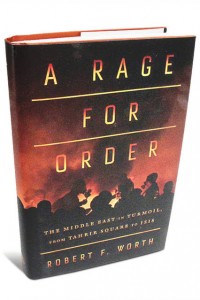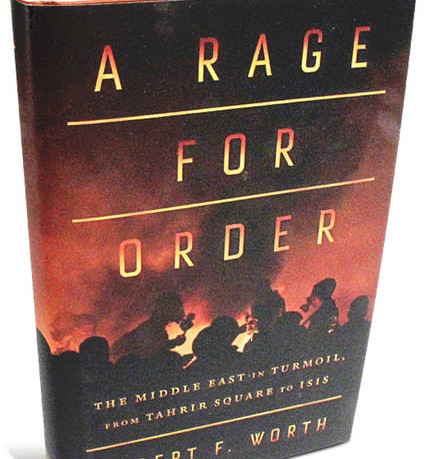Wall Street Journal
By Bartle Bull
Photo: wsj

Of the five countries where citizens rose up in 2011, only Tunisia is relatively stable and free. It also produces the most Islamic State recruits.
In early 2011, two young Syrian women named Aliaa and Noura whiled away spring mornings strolling to university or lying on Aliaa’s bed talking about suitors. Dark-haired Aliaa was the daughter of an Alawite military officer; blond Noura was the daughter of a well-known Sunni doctor.
They lived in Jableh, an ancient Phoenician port where the Sunni center of town, with its cafes and Mediterranean promenade, is surrounded by green hills of Alawite and Christian villages. Aliaa and Noura were the best of friends.
Then came the Arab Spring. In Syria, it began five years ago last month. By 2013, Noura was a refugee in Turkey, and Aliaa was worrying that, “if Bashar [al-Assad] falls . . . we, here, will all be in the niqab [the Muslim face veil], or we will be dead.” Noura had once promised to name her first daughter after Aliaa. Now the Sunni was accusing her former friend of trying to convert her to Shiism, and the Alawite thought she had discovered a pattern of Saudi links in her friend’s behavior during those happier days.
“Their friendship belonged to a world that no longer made sense,” writes New York Times reporter Robert F. Worth in “A Rage for Order: The Middle East in Turmoil, from Tahrir Square to ISIS.” “They had redefined each other, little by little, as enemies.”
Photo: wsj
A Rage for Order
By Robert F. Worth
Farrar, Straus & Giroux, 259 pages, $26
The word for the Middle East depicted in Mr. Worth’s excellent book is agony—the agony of families and friendships ripped apart, of countless innocent victims, of a world where heroism is pointless and change just a detour on the path to a worse version of the cruel status quo.
Mr. Worth’s book is about the core of that tragic springtime story born five years ago: the “Arab republican states,” the five nations that in 2011 rose up against their longstanding regimes of secular nationalist strongmen.
Of these, Egypt ended up where it started, with its former head of military intelligence in charge of a moderately unhappy country that seems relieved to have escaped from brief, democratically legitimate rule by the Muslim Brotherhood. Syria remains in the middle of civil war. Libya is outright chaos. Yemen is in the grip of a full-blown Saudi-Iranian proxy war, with its government exiled, its capital in the hands of Shia rebels and much of the coast an emirate of the world’s strongest al Qaeda franchise.
Only Tunisia—the place where it all began, when a 26-year-old street vendor, humiliated by corrupt local officials, immolated himself in December 2010—is today relatively stable, prosperous and free; it also produces more Islamic State recruits than anywhere else on earth.
The background to Tunisia’s relative success is fairly simple. Homogeneous in sect and ethnicity, the country benefited from a minor Ataturk figure in its founding post-colonial president, Habib Bourguiba, who established a good French-based education system and called the veil “that odious rag.” Bourguiba’s successor, Zine al-Abidine Ben Ali, installed by the Italians in a 1987 putsch, was more of a managerial crook like Egypt’s Hosni Mubarak than a true sadist like Assad or Gadhafi. Thus the world’s only stable Arab democracy, sitting somewhere between Turkey and Egypt on the Middle East’s lopsided happiness-misery spectrum.
One of the many strengths of Mr. Worth’s book is his gift for finding and telling the small story that illuminates the big picture. In Syria, we meet Aliaa and Noura. In Libya, we are with ex-rebels who intern their former jailors and torturers, painstakingly assembling evidence so that there might be a fair trial if a decent state ever emerges. In Egypt we are in Tahrir Square night after night with motley members of the revolution’s budding leadership. In Yemen, Mr. Worth introduces us to a rural sheik who writes Sufi love poems while maintaining a sadistic hold over the 60,000 peasants of his fief.
Meeting the sheik, 90 years old and somewhat enfeebled in his castle, Mr. Worth plans to ask him about decades of torture and rapine. But the man is too old. Instead Mr. Worth simply asks: “Where is Yemen going?” Reclining on a cushion with his water pipe as a room full of retainers falls silent for a full minute, the sheik finally replies. “Yemen,” he says, “is going to Yemen.”
The same could be said, or so we all fear, for the rest of the countries Mr. Worth writes about. It brings up the big question: What on earth is wrong with these places, and can they ever change? Change, of course, can happen. In 1960, Tunis, Damascus, Cairo, Aden and Beirut were among the more delightful cities anywhere. Peaceful democracy has taken root, for now, in places as disparate and unlikely as South Africa, Taiwan and Germany.
Mr. Worth does not try to lecture us about how it all got this way for his quintet of countries that experienced the Arab Spring or how it can be fixed. He says up front that he has “little to say about the role of the United States and other Western powers, because I believe it was mostly secondary.” His meta-historical commentary is limited to an assertion, perfectly fair, that “what happened in 2011 was not so much a beginning as an end.” It was the end of the secular mafia states that followed independence from Britain and France in the 1950s and 1960s, decades after the end of the Ottoman Empire.
Anyone who claims to know what to do about it all, or where it’s going next, has no more idea than the rest of us. Mr. Worth has the good judgment to focus on some first-class stories pursued over the course of his extraordinary travels. It is our additional good fortune that he writes about it so well. Of the long baking afternoons in Tahrir Square during Egypt’s revolution, “when at last the shadows lengthened and the sun touched the horizon,” he writes, “it was as if a painful blister had been lanced.” That same hot sun, he needs not remind us, would rise in the morning.
Mr. Bull’s next book is a history of Iraq.







